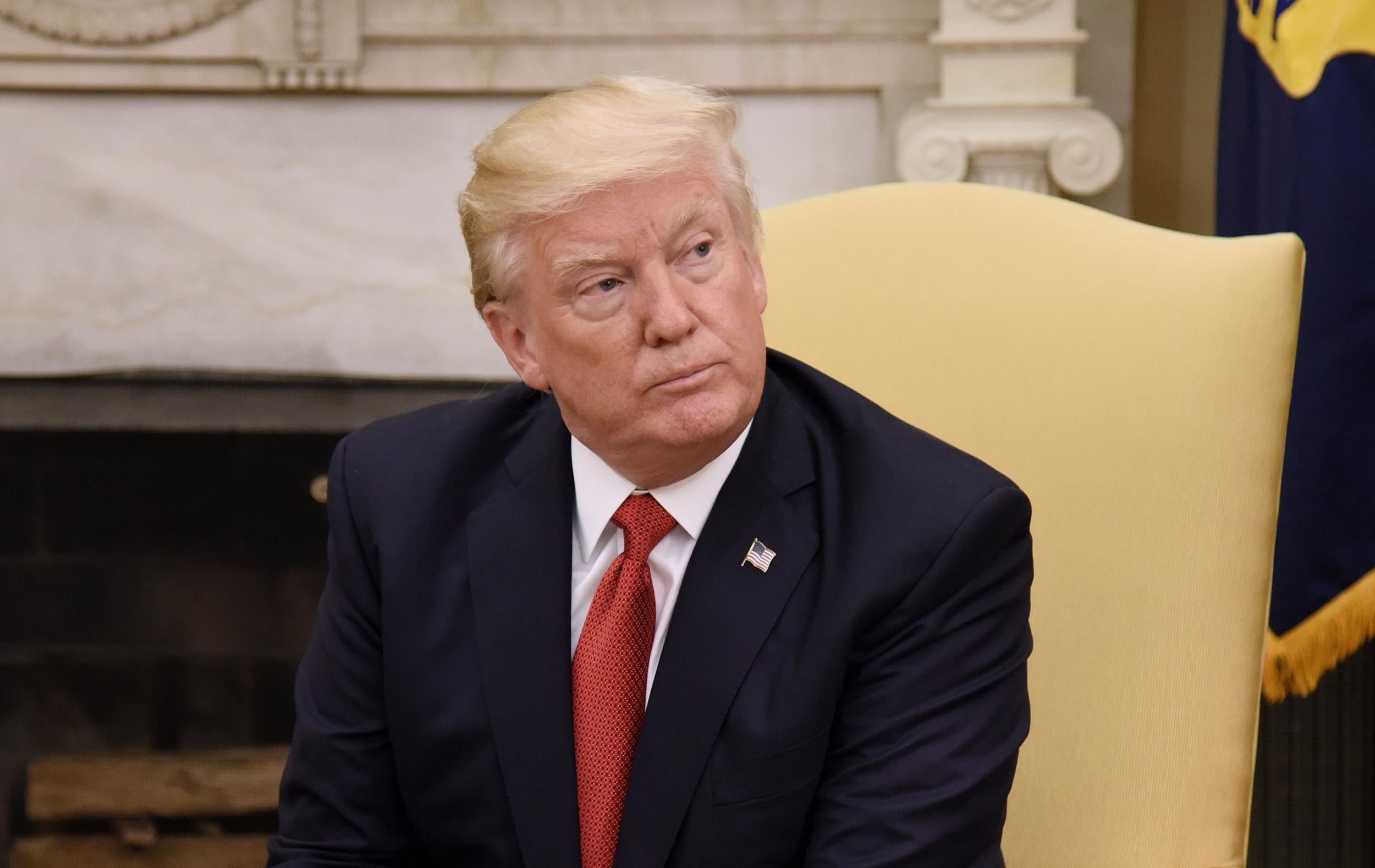Donald Trump's mental health poses 'existential threat' to the world, leading psychiatrist warns
US President's inability to feel guilt leaves us all 'vulnerable', according to expert

Your support helps us to tell the story
From reproductive rights to climate change to Big Tech, The Independent is on the ground when the story is developing. Whether it's investigating the financials of Elon Musk's pro-Trump PAC or producing our latest documentary, 'The A Word', which shines a light on the American women fighting for reproductive rights, we know how important it is to parse out the facts from the messaging.
At such a critical moment in US history, we need reporters on the ground. Your donation allows us to keep sending journalists to speak to both sides of the story.
The Independent is trusted by Americans across the entire political spectrum. And unlike many other quality news outlets, we choose not to lock Americans out of our reporting and analysis with paywalls. We believe quality journalism should be available to everyone, paid for by those who can afford it.
Your support makes all the difference.Donald Trump’s mental health poses an "existential threat" to the world because of his power to launch nuclear weapons at any time and for any reason, a leading psychiatrist has warned.
John Zinner said the US President's inability to feel guilt makes us all “vulnerable” to his “inner rage”.
He believes Mr Trump suffers from a fundamental self-esteem problem, which could lead to serious consequences.
The American Psychiatric Association states it is unethical for members to speculate over the mental health of a public figure from a distance under the Goldwater rule.
However, the clinic professor from George Washington University told The Times he felt he had a duty to society to speak out.
“We are facing an existential threat from Donald Trump because of his unfettered authority to launch nuclear weapons at any time and for any reason,” he said.
“[He] has a particular kind of character that’s very well known, especially by psychoanalytically orientated mental health people. What it involves is a fundamental self-esteem problem; an insecure self-esteem, side by side with a sense of grandiosity. So the person has a very contradictory image of themselves.”
He also claimed the former real estate mogul has “an extreme sensitivity to slights”, saying: “He can’t take criticism, and blames others, as he’s doing right now, blaming his staff for all the things that he did. His other reaction is rage.”
Dr Zinner is not the first psychiatrist to break the Goldwater rule, something that has divided medical opinion since Mr Trump’s inauguration.
The American Psychological Association issued a statement regarding their version of rule during the 2016 presidential campaign, after a number of media outlets asked them to weigh in on Mr Trump’s psychological fitness to become president.
“Our Code of Ethics clearly warns psychologists against diagnosing any person, including public figures, whom they have not personally examined,” President Susan McDaniel wrote at the time.
The clause, dating back to 1973, was named after the 1964 Republican presidential candidate Barry Goldwater.
Over 2,000 psychiatrists responded to Fact magazine’s 1964 survey asking if Mr Goldwater was psychologically fit for the presidency in their estimation.
The majority said he was not and the magazine published nearly 40 pages of the psychiatrists’ responses shortly before the election. Mr Goldwater lost and subsequently sued the now-defunct magazine for libel and won.
Join our commenting forum
Join thought-provoking conversations, follow other Independent readers and see their replies
Comments